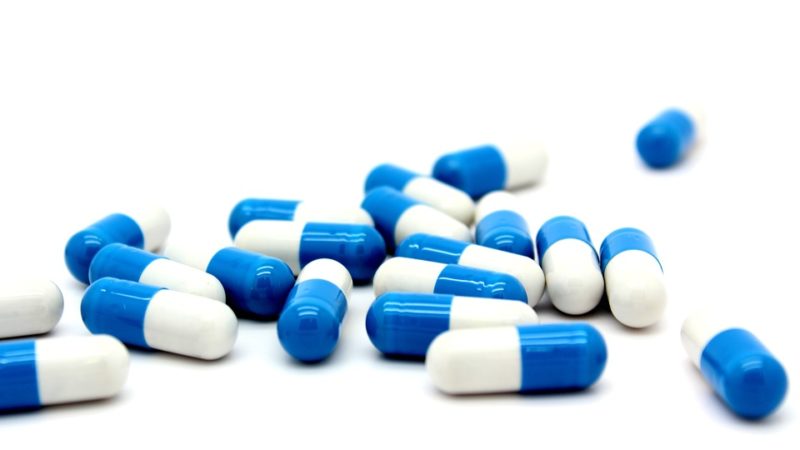An investigation has revealed hundreds of undisclosed payments from pharma companies to the organisations responsible for buying and commissioning our healthcare services.

NHS organisations responsible for buying healthcare services have accepted hundreds of ‘secret’ payments from drug companies, an investigation has revealed.
Clinical commissioning groups (CCGs) in England have been handed more than £3.7 million by pharmaceutical companies in payments they failed to disclose to patients or the public, leading medical journal the BMJ said today.
The researchers – who filed hundreds of FOI requests to CCGs across the country – point out that it is inappropriate for commissioning bodies to accept funding from the private sector which might influence procurement decisions.
NHS England guidance also requires CCGs to declare all conflicts of interest, and maintain an up to date public list of such disclosures.
Piotr Ozieranski, a lecturer at the University of Bath who worked with The BMJ on researching the payments, said:
“It seems rather peculiar that CCGs are permitted to accept any payments or benefits in kind from private sector companies.”
The scale of the undisclosed payments is enormous.
While publicly declared payments include tickets to top sports matches and a Beyoncé concert, only two thirds of the 4,600 payments – and a quarter of the value – that CCGs accepted from private companies and charities in 2015-16 and 2016-17 were listed in registers or declarations published by them.
The total monetary value of payments identified in CCGs’ publicly available registers that covered either the calendar years 2015 and 2016 or the tax years 2015-16 and 2016-17 was £1,283,767, whereas at least £5,027,818 has been identified in the payments listed in responses to The BMJ’s FOI requests.
But CCGs differ widely in their integrity, the research found.
More than half of the questionable payments were made to just nine of more than 200 groups in England.
Many CCGs accept no payments from charities or private companies. For example, NHS Hastings and Rother CCG told The BMJ this “helps to avoid any potential or real situations of undue bias or influence in the decision making of the membership of the CCG, governing bodies, or staff.”
Among those that did accept and fail to disclose payments from private companies, most funding went to cover education and training events, internal meetings or projects.
The Association of the British Pharmaceutical Industry told the BMJ that drug companies have an important role in supporting healthcare organisations and they “share an ambition with the NHS to see greater transparency and disclosure of information around industry support to healthcare organisations and professionals.”
Several CCGs say sponsorship arrangements with drug companies allow them to host more educational events than they otherwise could.
But professor Paul Glasziou at the Centre for Research in Evidence-Based Practice at Bond University in Australia, argues that doctors are often unaware of the effect of drug companies’ activities on their own behaviour.
He said:
“Pharmaceutical company dominance of the funding of continuing medical education can result in prescribing that harms.”
When asked why they had not published details of drug company payments, CCGs gave a variety of responses, such as believing there is no requirement to do so and citing problems sourcing information about event sponsorship from organisations to which the work had been outsourced.
Many have now said they will improve the way in which they declare private payments.
Charlotte England is a freelance journalist and writer at Left Foot Forward. Follow her on Twitter.
Left Foot Forward doesn't have the backing of big business or billionaires. We rely on the kind and generous support of ordinary people like you.
You can support hard-hitting journalism that holds the right to account, provides a forum for debate among progressives, and covers the stories the rest of the media ignore. Donate today.




2 Responses to “NHS commissioning groups accepted millions in ‘secret’ payments from drug companies”
John
Thankyou to you Charlotte & your contacts at the University of Bath for this article.
As Bernie Sanders, a US Senator, has often said that both Big Pharma & Big Agra have much to big an influence on legislation in the USA as well as influencing government policy e.g. Monsanto & simple food labelling ref the peoples right to know what if GMO’s are in their food.
Of course all the external payments that the CCG’s receive should & must be disclosed. Being very simplistic, but I still believe the proverb ‘that you don’t get something for nothing’, unless of course in this case Pharma are doing it purely for non financial gain company relation reasons!
Alasdair Macdonald
It is right to raise this issue, but, it is nothing new. When I graduated in 1970, several of my friends who were medics were being taking on golfing breaks and the like by pharmaceutical companies. I can remember when Harold Wilson’s government tried to curb the massive profits of Hoffmann La Roche were making from librium and valium, the companies refuse and threatened to move factories from the UK and to stop making these drugs available in the UK. Given that there was significant overprescribing many people were addicted to these medicines and there was an outcry AGAINST the government from “patients’ groups”. The Government backed down.